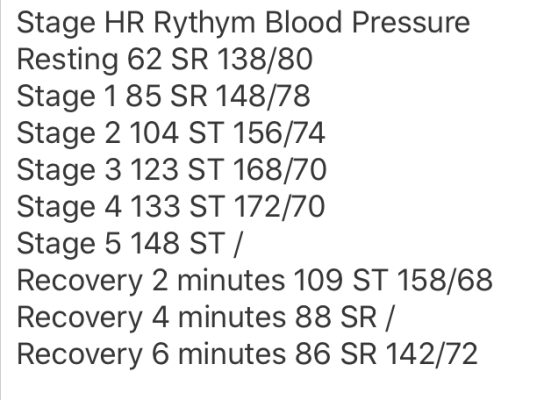street
Give me a museum and I'll fill it. (Picasso) Give me a forum ...
- Joined
- Nov 30, 2016
- Messages
- 9,585
I have an Omron. I have been ordered by my doc to monitor BP twice a day and report back in a month. Yesterday evening I did not walk and BP was 151/90 (a bit higher than normal). Today I did a brisk walk of about a mile with steep hills. BP was 113/84 about 20 minutes after the walk. This seems to be the norm with walking and not walking for me.
That was very common for me also. The more active I was before i took my BP the better it was.


